- Home
- Vladimir Nabokov
Pale Fire Page 2
Pale Fire Read online
Page 2
Despite a wobbly heart (see line 735), a slight limp, and a certain curious contortion in his method of progress, Shade had an inordinate liking for long walks, but the snow bothered him, and he preferred, in winter, to have his wife call for him after classes with the car. A few days later, as I was about to leave Parthenocissus Hall--or Main Hall (or now Shade Hall, alas), I saw him waiting outside for Mrs. Shade to fetch him. I stood beside him for a minute, on the steps of the pillared porch, while pulling my gloves on, finger by finger, and looking away, as if waiting to review a regiment: "That was a thorough job," commented the poet. He consulted his wrist watch. A snowflake settled upon it. "Crystal to crystal," said Shade. I offered to take him home in my powerful Kramler. "Wives, Mr. Shade, are forgetful." He cocked his shaggy head to look at the library clock. Across the bleak expanse of snow-covered turf two radiant lads in colorful winter clothes passed, laughing and sliding. Shade glanced at his watch again and, with a shrug, accepted my offer.
I wanted to know if he did not mind being taken the longer way, with a stop at Community Center where I wanted to buy some chocolate-coated cookies and a little caviar. He said it was fine with him. From the inside of the supermarket, through a plate-glass window, I saw the old chap pop into a liquor store. When I returned with my purchases, he was back in the car, reading a tabloid newspaper which I had thought no poet would deign to touch. A comfortable burp told me he had a flask of brandy concealed about his warmly coated person. As we turned into the driveway of his house, we saw Sybil pulling up in front of it. I got out with courteous vivacity. She said: "Since my husband does not believe in introducing people, let us do it ourselves: You are Dr. Kinbote, aren't you? And I am Sybil Shade." Then she addressed her husband saying he might have waited in his office another minute: she had honked and called, and walked all the way up, et cetera. I turned to go, not wishing to listen to a marital scene, but she called me back: "Have a drink with us," she said, "or rather with me, because John is forbidden to touch alcohol." I explained I could not stay long as I was about to have a kind of little seminar at home followed by some table tennis, with two charming identical twins and another boy, another boy.
Henceforth I began seeing more and more of my celebrated neighbor. The view from one of my windows kept providing me with first-rate entertainment, especially when I was on the wait for some tardy guest. From the second story of my house the Shades' living-room window remained clearly visible so long as the branches of the deciduous trees between us were still bare, and almost every evening I could see the poet's slippered foot gently rocking. One inferred from it that he was sitting with a book in a low chair but one never managed to glimpse more than that foot and its shadow moving up and down to the secret rhythm of mental absorption, in the concentrated lamplight. Always at the same time the brown morocco slipper would drop from the wool-socked foot which continued to oscillate, with, however, a slight slackening of pace. One knew that bedtime was closing in with all its terrors; that in a few minutes the toe would prod and worry the slipper, and then disappear with it from my golden field of vision traversed by the black bend-let of a branch. And sometimes Sybil Shade would trip by with the velocity and swinging arms of one flouncing out in a fit of temper, and would return a little later, at a much slower gait, having, as it were, pardoned her husband for his friendship with an eccentric neighbor; but the riddle of her behavior was entirely solved one night when by dialing their number and watching their window at the same time I magically induced her to go through the hasty and quite innocent motions that had puzzled me.
Alas, my peace of mind was soon to be shattered. The thick venom of envy began squirting at me as soon as academic suburbia realized that John Shade valued my society above that of all other people. Your snicker, my dear Mrs. C., did not escape our notice as I was helping the tired old poet to find his galoshes after that dreary get-together party at your house. One day I happened to enter the English Literature office in quest of a magazine with the picture of the Royal Palace in Onhava, which I wanted my friend to see, when I overheard a young instuctor in a green velvet jacket, whom I shall mercifully call Gerald Emerald, carelessly saying in answer to something the secretary had asked: "I guess Mr. Shade has already left with the Great Beaver." Of course, I am quite tall, and my brown beard is of a rather rich tint and texture; the silly cognomen evidently applied to me, but was not worth noticing, and after calmly taking the magazine from a pamphlet-cluttered table, I contented myself on my way out with pulling Gerald Emerald's bowtie loose with a deft jerk of my fingers as I passed by him. There was also the morning when Dr. Nattochdag, head of the department to which I was attached, begged me in a formal voice to be seated, then closed the door, and having regained, with a downcast frown, his swivel chair, urged me "to be more careful." In what sense, careful? A boy had complained to his adviser. Complained of what, good Lord? That I had criticized a literature course he attended ("a ridiculous survey of ridiculous works, conducted by a ridiculous mediocrity"). Laughing in sheer relief, I embraced my good Netochka, telling him I would never be naughty again. I take this opportunity to salute him. He always behaved with such exquisite courtesy toward me that I sometimes wondered if he did not suspect what Shade suspected, and what only three people (two trustees and the president of the college) definitely knew.
Oh, there were many such incidents. In a skit performed by a group of drama students I was pictured as a pompous woman hater with a German accent, constantly quoting Housman and nibbling raw carrots; and a week before Shade's death, a certain ferocious lady at whose club I had refused to speak on the subject of "The Hally Vally" (as she put it, confusing Odin's Hall with the title of a Finnish epic), said to me in the middle of a grocery store, "You are a remarkably disagreeable person. I fail to see how John and Sybil can stand you," and, exasperated by my polite smile, she added: "What's more, you are insane."
But let me not pursue the tabulation of nonsense. Whatever was thought, whatever was said, I had my full reward in John's friendship. This friendship was the more precious for its tenderness being intentionally concealed, especially when we were not alone, by that gruffness which stems from what can be termed the dignity of the heart. His whole being constituted a mask. John Shade's physical appearance was so little in keeping with the harmonies hiving in the man, that one felt inclined to dismiss it as a coarse disguise or passing fashion; for if the fashions of the Romantic Age subtilized a poet's manliness by baring his attractive neck, pruning his profile and reflecting a mountain lake in his oval gaze, present-day bards, owing perhaps to better opportunities of aging, look like gorillas or vultures. My sublime neighbor's face had something about it that might have appealed to the eye, had it been only leonine or only Iroquoian; but unfortunately, by combining the two it merely reminded one of a fleshy Hogarthian tippler of indeterminate sex. His misshapen body, that gray mop of abundant hair, the yellow nails of his pudgy fingers, the bags under his lusterless eyes, were only intelligible if regarded as the waste products eliminated from his intrinsic self by the same forces of perfection which purified and chiseled his verse. He was his own cancellation.
I have one favorite photograph of him. In this color snapshot taken by a onetime friend of mine, on a brilliant spring day, Shade is seen leaning on a sturdy cane that had belonged to his aunt Maud (see line 86). I am wearing a white windbreaker acquired in a local sports shop and a pair of lilac slacks hailing from Cannes. My left hand is half raised--not to pat Shade on the shoulder as seems to be the intention, but to remove my sunglasses which, however, it never reached in that life, the life of the picture; and the library book under my right arm is a treatise on certain Zemblan calisthenics in which I proposed to interest that young roomer of mine who snapped the picture. A week later he was to betray my trust by taking sordid advantage of my absence on a trip to Washington whence I returned to find he had been entertaining a fiery-haired whore from Exton who had left her combings and reek in all three bathrooms. Naturally, we separat
ed at once, and through a chink in the window curtains I saw bad Bob standing rather pathetically, with his crewcut, and shabby valise, and the skis I had given him, all forlorn on the roadside, waiting for a fellow student to drive him away forever. I can forgive everything save treason.
We never discussed, John Shade and I, any of my personal misfortunes. Our close friendship was on that higher, exclusively intellectual level where one can rest from emotional troubles, not share them. My admiration for him was for me a sort of alpine cure. I experienced a grand sense of wonder whenever I looked at him, especially in the presence of other people, inferior people. This wonder was enhanced by my awareness of their not feeling what I felt, of their not seeing what I saw, of their taking Shade for granted, instead of drenching every nerve, so to speak, in the romance of his presence. Here he is, I would say to myself, that is his head, containing a brain of a different brand than that of the synthetic jellies preserved in the skulls around him. He is looking from the terrace (of Prof. C.'s house on that March evening) at the distant lake. I am looking at him. I am witnessing a unique physiological phenomenon: John Shade perceiving and transforming the world, taking it in and taking it apart, recombining its elements in the very process of storing them up so as to produce at some unspecified date an organic miracle, a fusion of image and music, a line of verse. And I experienced the same thrill as when in my early boyhood I once watched across the tea table in my uncle's castle a conjurer who had just given a fantastic performance and was now quietly consuming a vanilla ice. I stared at his powdered cheeks, at the magical flower in his buttonhole where it had passed through a succession of different colors and had now become fixed as a white carnation, and especially at his marvelous fluid-looking fingers which could if he chose make his spoon dissolve into a sunbeam by twiddling it, or turn his plate into a dove by tossing it up in the air.
Shade's poem is, indeed, that sudden flourish of magic: my gray-haired friend, my beloved old conjurer, put a pack of index cards into his hat--and shook out a poem.
To this poem we now must turn. My Foreword has been, I trust, not too skimpy. Other notes, arranged in a running commentary, will certainly satisfy the most voracious reader. Although those notes, in conformity with custom, come after the poem, the reader is advised to consult them first and then study the poem with their help, rereading them of course as he goes through its text, and perhaps, after having done with the poem, consulting them a third time so as to complete the picture. I find it wise in such cases as this to eliminate the bother of back-and-forth leafings by either cutting out and clipping together the pages with the text of the thing, or, even more simply, purchasing two copies of the same work which can then be placed in adjacent positions on a comfortable table--not like the shaky little affair on which my typewriter is precariously enthroned now, in this wretched motor lodge, with that carrousel inside and outside my head, miles away from New Wye. Let me state that without my notes Shade's text simply has no human reality at all since the human reality of such a poem as his (being too skittish and reticent for an autobiographical work), with the omission of many pithy lines carelessly rejected by him, has to depend entirely on the reality of its author and his surroundings, attachments and so forth, a reality that only my notes can provide. To this statement my dear poet would probably not have subscribed, but, for better or worse, it is the commentator who has the last word.
CHARLES KINBOTE
Oct. 19, 1959, Cedarn, Utana
Pale Fire
A POEM IN FOUR CANTOS
CANTO ONE
1 I was the shadow of the waxwing slain
By the false azure in the windowpane;
I was the smudge of ashen fluff--and I
Lived on, flew on, in the reflected sky.
And from the inside, too, I'd duplicate
Myself, my lamp, an apple on a plate:
Uncurtaining the night, I'd let dark glass
Hang all the furniture above the grass,
And how delightful when a fall of snow
10 Covered my glimpse of lawn and reached up so
As to make chair and bed exactly stand
Upon that snow, out in that crystal land!
Retake the falling snow: each drifting flake
Shapeless and slow, unsteady and opaque,
A dull dark white against the day's pale white
And abstract larches in the neutral light.
And then the gradual and dual blue
As night unites the viewer and the view,
And in the morning, diamonds of frost
20 Express amazement: Whose spurred feet have crossed
From left to right the blank page of the road?
Reading from left to right in winter's code:
A dot, an arrow pointing back; repeat:
Dot, arrow pointing back ... A pheasant's feet!
Torquated beauty, sublimated grouse,
Finding your China right behind my house.
Was he in Sherlock Holmes, the fellow whose
Tracks pointed back when he reversed his shoes?
All colors made me happy: even gray.
30 My eyes were such that literally they
Took photographs. Whenever I'd permit,
Or, with a silent shiver, order it,
Whatever in my field of vision dwelt--
An indoor scene, hickory leaves, the svelte
Stilettos of a frozen stillicide--
Was printed on my eyelids' nether side
Where it would tarry for an hour or two,
And while this lasted all I had to do
Was close my eyes to reproduce the leaves,
40 Or indoor scene, or trophies of the eaves.
I cannot understand why from the lake
I could make out our front porch when I'd take
Lake Road to school, whilst now, although no tree
Has intervened, I look but fail to see
Even the roof. Maybe some quirk in space
Has caused a fold or furrow to displace
The fragile vista, the frame house between
Goldsworth and Wordsmith on its square of green.
I had a favorite young shagbark there
50 With ample dark jade leaves and a black, spare,
Vermiculated trunk. The setting sun
Bronzed the black bark, around which, like undone
Garlands, the shadows of the foliage fell.
It is now stout and rough; it has done well.
White butterflies turn lavender as they
Pass through its shade where gently seems to sway
The phantom of my little daughter's swing.
The house itself is much the same. One wing
We've had revamped. There's a solarium. There's
60 A picture window flanked with fancy chairs.
TV's huge paperclip now shines instead
Of the stiff vane so often visited
By the naive, the gauzy mockingbird
Retelling all the programs she had heard;
Switching from chippo-chippo to a clear
To-wee, to-wee; then rasping out: come here,
Come here, come herrr'; flirting her tail aloft,
Or gracefully indulging in a soft
Upward hop-flop, and instantly (to-wee!)
70 Returning to her perch--the new TV.
I was an infant when my parents died.
They both were ornithologists. I've tried
So often to evoke them that today
I have a thousand parents. Sadly they
Dissolve in their own virtues and recede,
But certain words, chance words I hear or read,
Such as "bad heart" always to him refer,
And "cancer of the pancreas" to her.
A preterist: one who collects cold nests.
80 Here was my bedroom, now reserved for guests.
Here, tucked away by the Canadian maid,
I listened to the buzz downstairs and prayed
For everybody to be always well,
Uncles and aunts, the maid, her niece Adele
Who'd seen the Pope, people in books, and God.
I was brought up by dear bizarre Aunt Maud,
A poet and a painter with a taste
For realistic objects interlaced
With grotesque growths and images of doom.
90 She lived to hear the next babe cry. Her room
We've kept intact. Its trivia create
A still life in her style: the paperweight
Of convex glass enclosing a lagoon,
The verse book open at the Index (Moon,
Moonrise, Moor, Moral), the forlorn guitar,
The human skull; and from the local Star
A curio: Red Sox Beat Yanks 5-4
On Chapman's Homer, thumbtacked to the door.
My God died young. Theolatry I found
100 Degrading, and its premises, unsound.
No free man needs a God; but was I free?
How fully I felt nature glued to me
And how my childish palate loved the taste
Half-fish, half-honey, of that golden paste!
My picture book was at an early age
The painted parchment papering our cage:
Mauve rings around the moon; blood-orange sun;
Twinned Iris; and that rare phenomenon
The iridule--when, beautiful and strange,
110 In a bright sky above a mountain range
One opal cloudlet in an oval form
Reflects the rainbow of a thunderstorm
Which in a distant valley has been staged--
For we are most artistically caged.

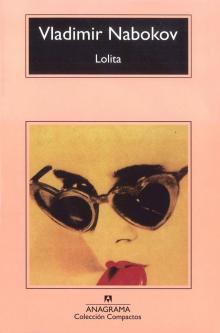 Lolita
Lolita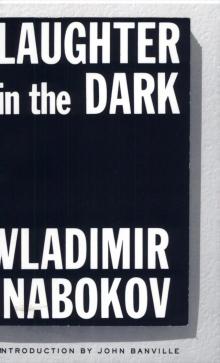 Laughter in the Dark
Laughter in the Dark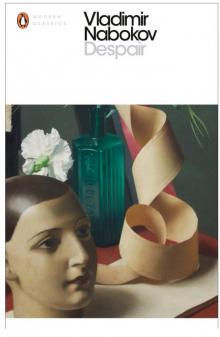 Despair
Despair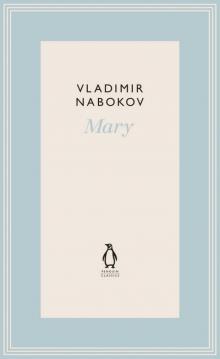 Mary
Mary The Enchanter
The Enchanter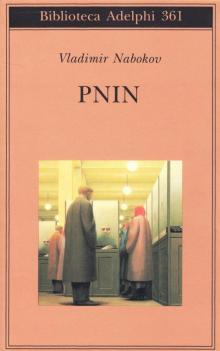 Pnin
Pnin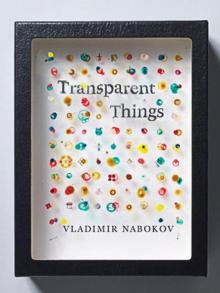 Transparent Things
Transparent Things The Real Life of Sebastian Knight
The Real Life of Sebastian Knight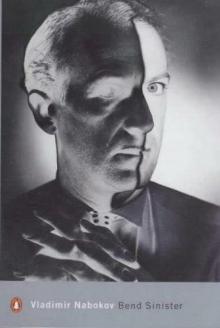 Bend Sinister
Bend Sinister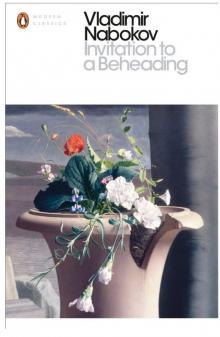 Invitation to a Beheading
Invitation to a Beheading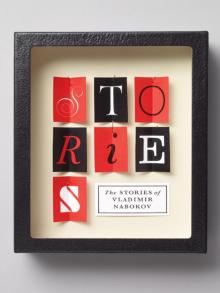 The Stories of Vladimir Nabokov
The Stories of Vladimir Nabokov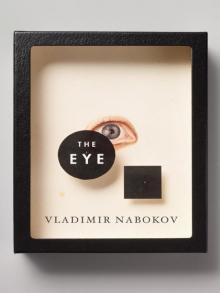 The Eye
The Eye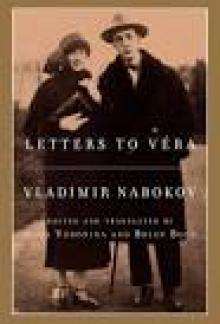 Letters to Véra
Letters to Véra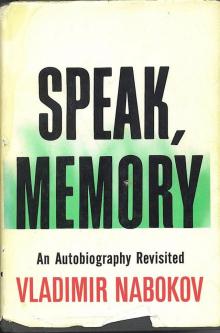 Speak, Memory
Speak, Memory The Gift
The Gift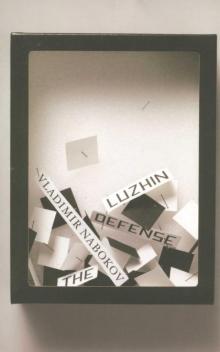 The Luzhin Defense
The Luzhin Defense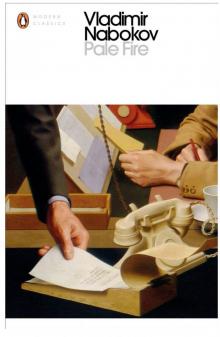 Pale Fire
Pale Fire Glory
Glory Man From the USSR & Other Plays
Man From the USSR & Other Plays Vladimir Nabokov: Selected Letters 1940-1977
Vladimir Nabokov: Selected Letters 1940-1977 Strong opinions
Strong opinions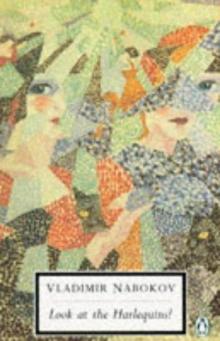 Look at the Harlequins!
Look at the Harlequins!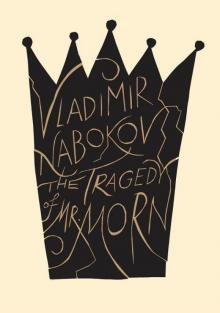 The Tragedy of Mister Morn
The Tragedy of Mister Morn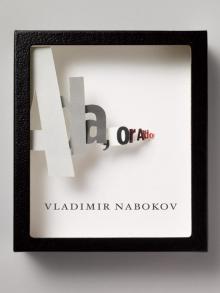 Ada, or Ardor
Ada, or Ardor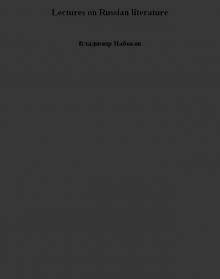 Lectures on Russian literature
Lectures on Russian literature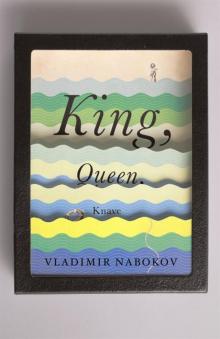 King, Queen, Knave
King, Queen, Knave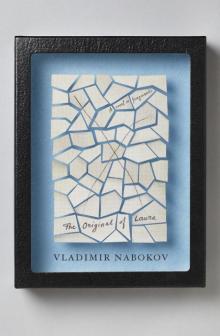 The Original of Laura
The Original of Laura